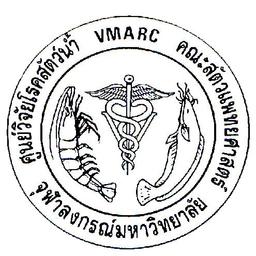A fund for injured turtles
 ศูนย์วิจัยโรคสัตว์น้ำ คณะสัตวแพทยศาสตร์ จุฬาลงกรณ์มหาวิทยาลัย
ศูนย์วิจัยโรคสัตว์น้ำ คณะสัตวแพทยศาสตร์ จุฬาลงกรณ์มหาวิทยาลัยDonations for the project will assist in covering surgery costs, providing food and medication to sick or injured turtles, totaling600individuals
Period of time
Aug 2, 2018 - Feb 28, 2025Location
Nationwide in ThailandSDG Goals
Beneficiary groups of the project
The Veterinary Medical Aquatic animal Research Center (VMARC), Faculty of Veterinary Science Chulalongkorn University takes care of about 300-500 injured and sick turtles/soft-shell turtles each year. Biggest threats for these animals are plastics, coins, other foreign items and accident.
Social issues
Many of the animals need surgeries which cost between 5,000 – 20,000 baht depending on their conditions. Injuries from accident (e.g. broken shell) often takes longer than other cases in the recovery phase. After the recovery, they are released to the wild – an area with as little human impact as possible. Apart from the surgery cost, there is about 500 baht expense per animal per month.
VMARC has founded an aquatic animal saving fund as a mean to raise donation for purchase of medical tools, medicines and to smoothly continue the support for animals.
Additional information
The fund will be contributed to saving lives of all types of turtles including sea turtles – this includes heavily injured turtles that are too vulnerable to be released back to the wild as well. Most of the sea turtles at VMARC are from the wild (not a pet turtle) or from illegal trade. They usually suffer from eating plastics and foreign items including coins and other indigestible litter.
Once the injured animal case is reported, VMARC specialist will provide First-Aid guidance to the reporter before admitting the animal to the center. Once arrives at the center the animal will receive a thorough check by a vet or a specialist. Some of them receive an x-ray, ultrasound, endoscopes, or CT scan as part of the diagnosis.
Turtles with injured shells usually need one month to recover. In some cases, the animal need to stay at the center for the rest of their lives due to heavy injury on their face or mouth which disable them from finding food in the nature
Approaches to addressing issues
Establishment of a Marine Life Aid Fund, open to donations from kind-hearted individuals to support expenses related to the procurement of materials, equipment, technology, medical instruments, and a significant quantity of medical supplies for the treatment of marine animals. The project is currently facing shortages and requires continuous funding for ongoing purchases.
Allocate funds to support the cost of food in caring for an injured turtle.
Operational Plan
The personnel have been contacted by individuals who have encountered a sea turtle in distress or injury. The veterinarian will explain basic first aid procedures before transporting the turtle to receive treatment at the Aquatic Animal Disease Research Center, Faculty of Veterinary Science, Chulalongkorn University.
A veterinarian from the Center for Aquatic Animal Disease Research conducts examinations and treatments, such as wound care, administering medications, providing fluid therapy, feeding, surgery, and some cases may require the use of various specialized medical technologies or equipment for diagnosis and disease treatment, such as X-rays, ultrasound, endoscopes, CT scans, and more.
A sick or injured turtle may require different durations of treatment, especially concerning its shell. The treatment process can take anywhere from 1 month to 1 year.
Consider releasing into the natural habitat within conservation areas or national parks where there is sufficient food for animals to prevent further harm. In the case of a turtle being run over by a car in a critical location, resulting in disability or facial injuries affecting its ability to forage in the wild, the project must provide ongoing care for the rest of its life.
Budget Plan
| Item | Quantity | Amount (THB) |
|---|---|---|
| Medical treatment costs, medical equipment expenses, and food costs to aid in the conservation of freshwater turtles and sea turtles in Thailand. | 1list | 3,000,000.00 |
| Total Amount | 3,000,000.00 | |
| Taejai support fee (10%) | 300,000.00 | |
Project manager

ศูนย์วิจัยโรคสัตว์น้ำ คณะสัตวแพทยศาสตร์ จุฬาลงกรณ์มหาวิทยาลัย
Create a fundraising page
Collaborate to fundraise in support of this project
Create a fundraising page